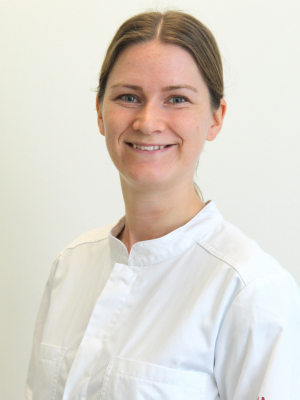National clinical study
SUPE_R - Kan opfølgning efter behandling for lungekræft forbedres med analyse af cirkulerende tumor DNA?
The blood samples for analysis in the present study are all collected as part of the SUPE_R trial (SUrveillance with PET/CT and liquid biopsies of stage I-III lung cancer patients after completion of definitive therapy; a Randomized controlled trial), which is a multicenter randomized clinical trial.
The project received funding in 2023
Principal Investigator (PI)

PhD-student

Collaborators
Aalborg University Hospital
Aarhus University Hospital
Gødstrup Hospital
Vejle Hospital
Odense University Hospital
Roskilde Hospital
Næstved Hospital
Bispebjerg Hospital
Herlev and Gentofte Hospital
Rigshospitalet
Patient enrollment
375
Cancer
Lung cancer
Type
Retrospective interventional - randomized
Platform
NGS
Abstract
This study aims to improve early detection of treatable relapse of lung cancer and thereby improve survival and quality of life. Despite increased focus on prevention and improved treatment possibilities, lung cancer remains among the most frequent and deathliest cancers worldwide and even patients treated with curative intention have a high risk of relapse. Early detection of relapse can enable treatment that is more efficient and improve survival.
Because of high risk of relapse, active surveillance after treatment is recommended. However, current national and international recommendations suggests CT for surveillance but lacks evidence. Thus, more knowledge on the efficacy of surveillance with current as well as newer technologies, the impact on patient treatment, quality of life and survival, is needed. Over the last decade, PET/CT has proven more sensitive and replaced CT for staging. Research suggest that PET/CT can also improve surveillance after treatment. However, surveillance, especially by scanning, is stressful for patients and increasingly costly for the society. Recently, blood samples have become of great interest for advanced cancer diagnostics and for tracking cancer evolution. These ’liquid biopsies’, represent a truly minimally invasive examination, making repeated measurements and close surveillance feasible. Blood samples carry a whole variety of cancer biomarkers, including circulating tumor cells and ctDNA (circulating cell-free tumour DNA) and can be detected also in patients with a low tumor burden, e.g. early stage NSCLC or at an early time point before relapse.
In-depth profiling of ctDNA by state-of-the art technologies will allow us to track cancer evolution and detect early signs of treatment resistance and relapse, and hereby improve patient´s outcome. This nation-wide initiative will be able to deliver large-scale evidence for possible implementation of liquid biopsies and ctDNA analysis in the standard care.
The blood samples for analysis in the present study are all collected as part of the SUPE_R trial, which is a multicenter randomized clinical trial. Consecutive patients was recruited from the departments of pulmonology or oncology at participating hospitals in all five Danish regions. The patients was invited to participate in the study at their initial contact prior to initiation of therapy and followed every 3 months until relapse or for up to 24 months. The analysis of the collected blood samples will be performed in a matched pair case-control design. When the planned surveillance period of 24 months has been completed for all 750 patients. Blood samples from patients with an event (confirmed relapse or death in both arms) will be identified. Based on number of events at interim analysis this is estimated to be approx. 200 patients. A control group of similar size completing the surveillance period without events will be identified. Baseline and follow-up blood samples from this subpopulation of estimated 400 patients (2000 samples) will be analyzed. The collected samples will be analyzed using the lung cancer specific panel Avenio Surveilance IVD Roche covering 197 genes with 500 lung cancer hotspots. The method is well suited to detect minimal residual disease based on its high sensitivity (0.02%).The 500 DNA hotspot positions in the employed gene panel have a frequency so that 95% of lung cancer patients will have a mutation that is covered by the gene panel analyzed. Thus, our chance of identifying mutations in the ctDNA, if they are present, are therefore good. The analyses will be performed at the Dept. of Clinical-Biochemistry at Aarhus University Hospital.
This trial will enable a comprehensive assessment, standardization and improvement of surveillance of patients treated for lung cancer in Denmark. The combined collection of Imaging, Quality of Life and liquid biopsies in a national, randomized clinical setting is an ambitious and internationally unique initiative. This study will provide the scientific basis for improving surveillance and treatment of patients with lung cancer in Denmark and worldwide as well as provide knowledge transferable to other groups of cancer patients.
ADDRESS FOR THE SECRETARIAT
Science Center Skejby, MOMA
Brendstrupgårdsvej 21, build. A
8200 Aarhus N
CONTACT
ctDNA@clin.au.dk
+45 78 45 53 39

